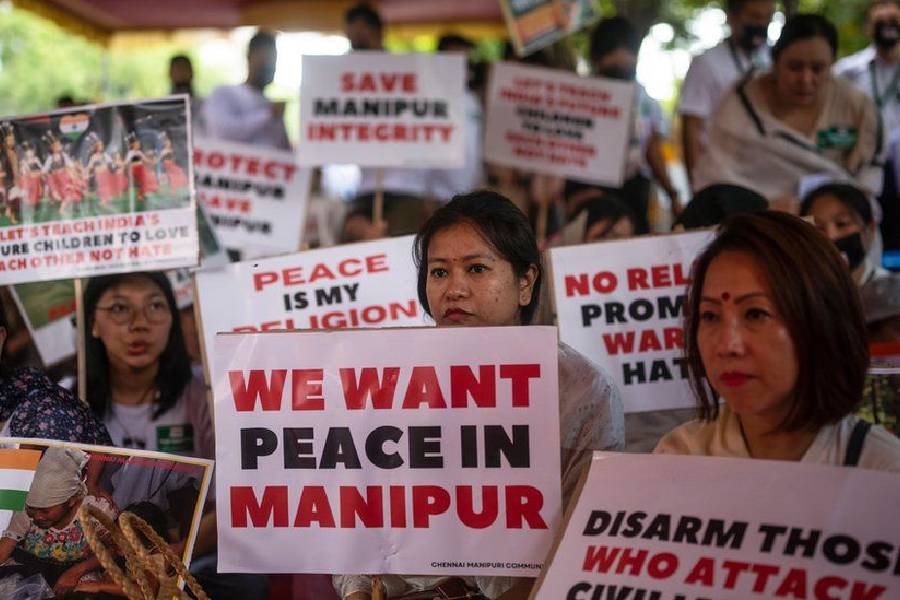Elections to the 40-member Mizoram assembly this month, predictably, had a key focus: Manipur. While some of the rhetoric spewed by the contestants veered around the ongoing Meitei-Kuki conflict, there is a corner of our violence-prone world where Mizos and Manipuris are battling the odds together, shoulder-to-shoulder.
To unearth the genesis of this unique bonding, one needs to comprehend the Jewish term ‘aliyah’, which refers to the return of the Jewish diaspora “to the holy land of Israel”. Both Manipur and Mizoram have a sizeable community claiming descent from one of the ten ‘lost tribes’ of Israel. They were named B’nei Menashe (children of Menashe, the great-grandson of Joseph) by Rabbi Eliyahu Avichail when he visited the region in the 1980s.
Since then, thousands of Manipuris and Mizos have embraced aliyah and returned to settle in Israel in batches. The last aliyah from Mizoram took place as recently as in 2020, when 120 members of the Menashe community were given Israeli citizenship.
According to W. Lalam Hangshing, the chairman of the B’nei Menashe Council of India, the aliyah (migration) to Israel has taken place over the past three decades because “our people pray to be in Jerusalem. Even my father migrated from Manipur to Israel in 2014 as he wished to be buried there. My uncles and cousins live in Israel,” he added.
All the teenaged children have joined the Israel Defense Forces and are with their units, Hangshing said. “The boys are conscripted for three years, the girls for two. Four of my cousins’ children are in the IDF. My cousins have now been called in as reserves. One of my cousin’s daughters has just joined her unit,” he disclosed, adding that there were nearly 4,000 members from Manipur and over a thousand from Mizoram in Israel.
Brothers in arms
Embassy Lawbei, a Mizo professor in Bangalore, is in touch with her friends in the IDF. “When the war broke out, my immediate thought was of my friend, Reuven Darngawn, serving in the IDF. We became friends through a Facebook community group called ‘Mizo Manchester United Fans’ eleven years ago. I have seen his journey from joining the IDF to his marriage, to becoming a father of two and now fighting for his country. Reuven moved to Israel from Mizoram in 2005,” she said.
According to Lawbei, there are over 5,000 Mizos settled in various parts of Israel. She said: “Another Facebook friend, Aaron Khawlhring, says he is the only Mizo in his camp. I also spoke to Jvulun David, 32, a resident of Afula, who just dropped off his two younger brothers to join the force. He says he has never experienced anything as horrific as this war.” Speaking candidly, Lawbei said, “In Nof Hagalil, Meir Phaltual has been waiting for his brothers, Harel, 28, and Nakshon, 21, who were called for duty to fight against Hamas. Their parents are putting up a brave face”.
F. Lallianthluanga, also a resident of Nof Hagalil, said: “Schools and colleges have been shut down. Over 30 Mizos from our town are deployed on the battlefield. We hope and pray that we don’t lose anyone”. Every night, Lawbei added, the community prays for the safe return of all its members.
While the three synagogues in Calcutta have now debarred non-Jewish citizens, the two synagogues in Aizawl have been holding a candlelight vigil for the Menashe in Israel, regardless of whether they are Mizo or Manipuri. In fact, as the Menache adage goes, ‘there is, among us, a living bridge’. If only this bonding could bridge the Kuki-Meitei divide and resolve the schism back home.











